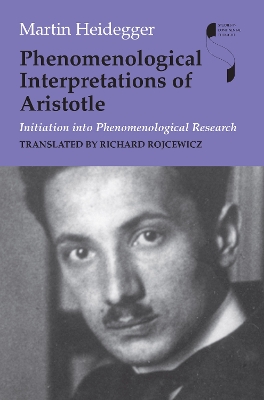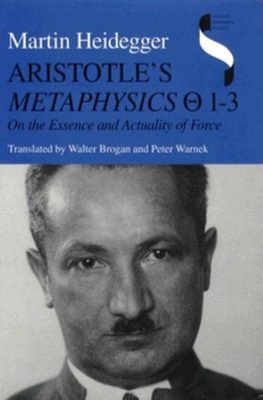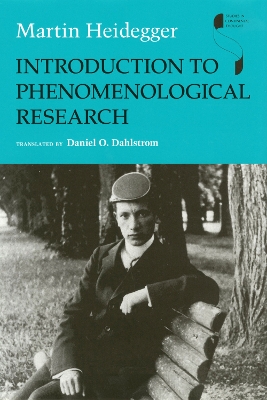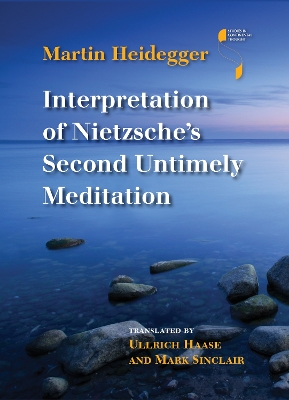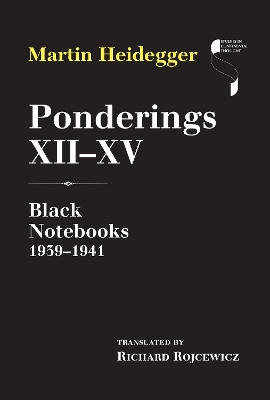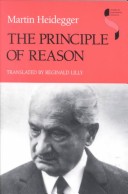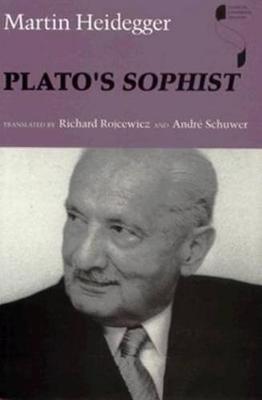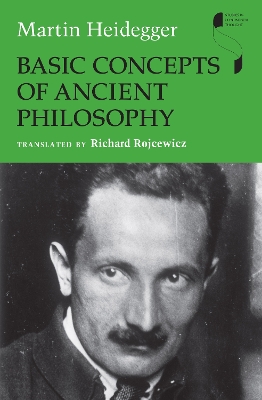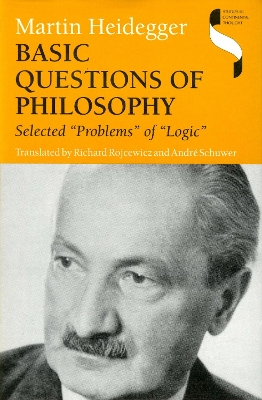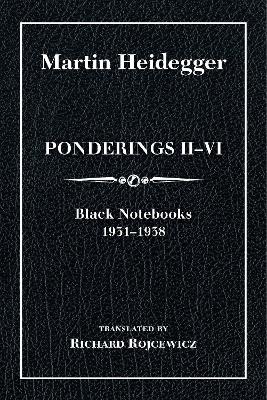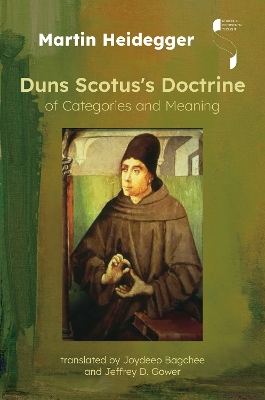Studies in Continental Thought
37 total works
Phenomenological Interpretations of Aristotle, the text of a lecture course presented at the University of Freiburg in the winter of 1921–22, was first published in 1985 as volume 61 of Heidegger's collected works. Preceding Being and Time, the work shows Heidegger introducing novel vocabulary as he searches for his genuine philosophical voice. Here, Heidegger first takes up the role of the definition of philosophy and then elaborates a conception of 'factical life,'or human life as it is lived concretely in relation to the world, a relation he calls 'caring.' Heidegger's descriptions of the movement of life are original, striking, and unique to this lecture course. As he works out a phenomenology of factical life, Heidegger lays the groundwork for a phenomenological interpretation of Aristotle, one of the pivotal influences in the development of his philosophy. As an early articulation of Heidegger's thought, this book will be an indispensable resource for scholars and students.
Martin Heidegger's reading of Aristotle was one of the pivotal influences in the development of his philosophy. First published in German in 1981 as volume 33 of Heidegger's Collected Works, this book translates a lecture course he presented at the University of Freiburg in 1931. Heidegger's careful translation and his probing commentary on the first three chapters of Book IX of Metaphysics show the close correlation between his phenomenological interpretation of the Greeks (especially of Aristotle) and his critique of metaphysics. Additionally, Heidegger's confrontation with Aristotle's Greek text makes a significant contribution to contemporary scholarship on Aristotle, particularly the understanding of potentiality in Aristotle's thought. Finally, the book exemplifies Heidegger's gift for teaching students how to read a philosophical text and how to question that text in a philosophical way.
Introduction to Phenomenological Research, volume 17 of Martin Heidegger's Gesamtausgabe, contains his first lectures given at Marburg in the winter semester of 1923-1924. In these lectures, Heidegger introduces the notion of phenomenology by tracing it back to Aristotle's treatments of phainomenon and logos. This extensive commentary on Aristotle is an important addition to Heidegger's ongoing interpretations which accompany his thinking during the period leading up to Being and Time. Additionally, these lectures develop critical differences between Heidegger's phenomenology and that of Descartes and Husserl and elaborate questions of facticity, everydayness, and flight from existence that are central in his later work. Here, Heidegger dismantles the history of ontology and charts a new course for phenomenology by defining and distinguishing his own methods.
The History of Beyng belongs to a series of Martin Heidegger's reflections from the 1930s that concern how to think about being not merely as a series of occurrences, but as essentially historical or fundamentally as an event. Beginning with Contributions to Philosophy (Of the Event), these texts are important for their meditations on the oblivion and abandonment of being, politics, and race, and for their incisive critique of power, force, and violence. Originally published in 1998 as volume 69 of Heidegger's Complete Works, this English translation opens new avenues for understanding the trajectory of Heidegger's thinking during this crucial time.
Interpretation of Nietzsche's Second Untimely Meditation
by Martin Heidegger
Martin Heidegger's Nietzsche's Second Untimely Meditation presents crucial elements for understanding Heidegger's thinking from 1936 to 1940. Heidegger offers a radically different reading of a text that he had read decades earlier, showing how his relationship with Nietzche's has changed, as well as how his understandings of the differences between animals and humans, temporality and history, and the Western philosophical tradition developed. With his new reading, Heidegger delineates three Nietzschean modes of history, which should be understood as grounded in the structure of temporality or historicity and also offers a metaphysical determination of life and the essence of humankind. Ullrich Hasse and Mark Sinclair offer a clear and accessible translation despite the fragmentary and disjointed quality of the original lecture notes that comprise this text.
Martin Heidegger's 1942 lecture course interprets Friedrich Hoelderlin's hymn "The Ister" within the context of Hoelderlin's poetic and philosophical work, with particular emphasis on Hoelderlin's dialogue with Greek tragedy. Delivered in summer 1942 at the University of Freiburg, this course was first published in German in 1984 as volume 53 of Heidegger's Collected Works. Revealing for Heidegger's thought of the period are his discussions of the meaning of "the political" and "the national," in which he emphasizes the difficulty and the necessity of finding "one's own" in and through a dialogue with "the foreign." In this context Heidegger reflects on the nature of translation and interpretation. A detailed reading of the famous chorus from Sophocles' Antigone, known as the "ode to man," is a key feature of the course.
Ponderings XII–XV is third in a series of four "Black Notebooks" which Martin Heidegger composed in the early years of World War II. As always with Heidegger, the thoughts expressed here are not superficial reflections on current events, but instead penetrate deeply into them in order to contemplate their historical importance. Throughout his ponderings, Heidegger meditates on the call for an antidote to the rampant technological attitude which views all things with a dismissive consumer mentality. Although this volume caused quite a scandal when originally published in German due to references to World-Judaism, English readers with access to the full text can now judge for themselves what Heidegger means in his use of that term. In style, this notebook is less aphoristic and more sustained than the previous ones, but remains probing, challenging, and fascinating.
Martin Heidegger's 1941-1942 lecture course on Friedrich Hoelderlin's hymn, "Remembrance," delivered immediately following his confrontation with Nietzsche, lays out a detailed plan for the interpretation of Hoelderlin's poetry in which remembrance is a central concern. With its emphasis on the "free use of the national" and the "holy of the fatherland," the course marks an important progression in Heidegger's political thought. In addition to its startlingly innovative analyses of greeting, the festive, and the dream, the text provides Heidegger's fullest elaboration of the structure of commemorative thinking in relationship to time and the possibility of an "other beginning." This English translation by William McNeill and Julia Ireland completes the series of Heidegger's major lecture courses on Hoelderlin.
First published in German in 1995, volume 77 of Heidegger's Complete Works consists of three imaginary conversations written as World War II was coming to an end. Composed at a crucial moment in history and in Heidegger's own thinking, these conversations present meditations on science and technology; the devastation of nature, the war, and evil; and the possibility of release from representational thinking into a more authentic relation with being and the world. The first conversation involves a scientist, a scholar, and a guide walking together on a country path; the second takes place between a teacher and a tower-warden, and the third features a younger man and an older man in a prisoner-of-war camp in Russia, where Heidegger's two sons were missing in action. Unique because of their conversational style, the lucid and precise translation of these texts offers insight into the issues that engaged Heidegger's wartime and postwar thinking.
In a line-by-line interpretation of the "Sophist", Heidegger then takes up the relation of Being and non-being, the ontological problematic that forms the key link between Greek philosophy and Heidegger's thought.
Basic Concepts of Ancient Philosophy
by Martin Heidegger and Richard Rojcewicz
Basic Concepts of Ancient Philosophy presents a lecture course given by Martin Heidegger in 1926 at the University of Marburg. First published in German as volume 22 of the collected works, the book provides Heidegger's most systematic history of Ancient philosophy beginning with Thales and ending with Aristotle. In this lecture, which coincides with the completion of his most important work, Being and Time, Heidegger is working out a way to sharply differentiate between beings and Being. Richard Rojcewicz's clear and accurate translation offers English-speaking readers valuable insight into Heidegger's views on Ancient thought and concepts such as principle, cause, nature, unity, multiplicity, Logos, truth, science, soul, category, and motion.
First published in German in 1984 as volume 45 of Martin Heidegger's collected works, this book is the first English translation of a lecture course he presented at the University of Freiburg in 1937–1938. Heidegger's task here is to reassert the question of the essence of truth, not as a "problem" or as a matter of "logic," but precisely as a genuine philosophical question, in fact the one basic question of philosophy. Thus, this course is about the essence of truth and the essence of philosophy. On both sides Heidegger draws extensively upon the ancient Greeks, on their understanding of truth as aletheia and their determination of the beginning of philosophy as the disposition of wonder. In addition, these lectures were presented at the time that Heidegger was composing his second magnum opus, Beiträge zur Philosophie, and provide the single best introduction to that complex and crucial text.
Ponderings II–VI begins the much-anticipated English translation of Martin Heidegger's "Black Notebooks." In a limited edition binding, this series of small notebooks with black covers, Heidegger confided sundry personal observations and ideas over the course of 40 years. The five notebooks in this volume were written between 1931–1938 and thus chronicle Heidegger's year as Rector of the University of Freiburg during the Nazi era. Published in German as volume 94 of the Complete Works, these challenging and fascinating journal entries shed light on Heidegger's philosophical development regarding his central question of what it means to be, but also on his relation to National Socialism and the revolutionary atmosphere of the 1930s in Germany. Readers previously familiar only with excerpts taken out of context may now determine for themselves whether the controversy and censure the "Black Notebooks" have received are deserved or not. This faithful translation by Richard Rojcewicz opens the texts in a way that captures their philosophical and political content while disentangling Heidegger's notoriously difficult language.
Through these broad and sprawling notebooks, Heidegger offers fascinating opinions on Holderlin, Nietzsche, Wagner, Wittgenstein, Pascal, and many others. The importance of the Black Notebooks transcends Heidegger's relationship with National Socialism. These personal notebooks contain reflections on technology, art, Christianity, the history of philosophy, and Heidegger's attempt to move beyond that history into another beginning.
Duns Scotus's Doctrine of Categories and Meaning is a key text for the origins of Martin Heidegger's concept of "facticity." Originally submitted as a postdoctoral thesis in 1915, it focuses on the 13th-century philosopher-theologian John Duns Scotus.
Heidegger first analyzes Scotus's doctrine of categories, then offers a meticulous explanation of the Grammatica Speculativa, a work of medieval grammar now known to be authored by the Modist grammarian Thomas of Erfurt. Taken together, these investigations represent an early foray into Heidegger's lifelong philosophical concerns, "the question of being in the guise of the problem of categories and the question of language in the guise of the doctrine of meaning."
This new and unique translation of one of Heidegger's earliest works offers an important look at his early thinking before the question of being became his central concern and will appeal to readers exploring Heidegger's philosophical development, medieval philosophy, phenomenological interpretations of the history of philosophy, and the philosophy of language.
